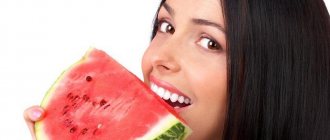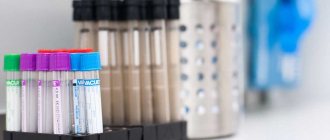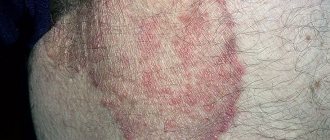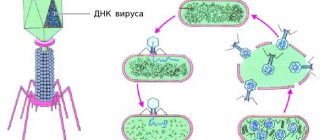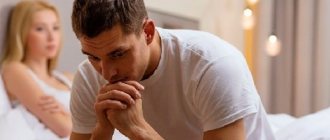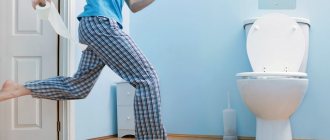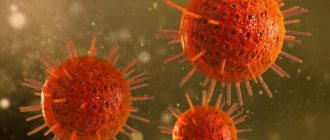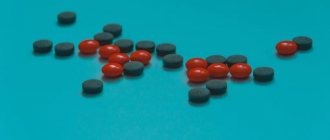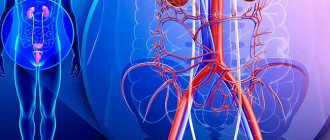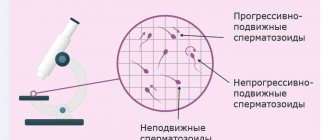Frequent urination at night (nocturia) is a disorder of the urinary system. This is a condition in which a sleeping person experiences multiple urges to urinate. Doctors consider as a deviation from the norm the number of urges to go to the toilet more than once or twice a night without obvious reasons, for example, an increased amount of alcohol consumed at night, or taking diuretics.
This is not only an unpleasant problem that interferes with sleep and restoration of strength, but also an important symptom indicating a serious pathology of the body. The difficulty of treatment and full recovery lies in the fact that most people do not think about complications, they simply get used to it, adapting to nocturia. Although at the initial stage, almost any disease responds well to treatment.
Causes of frequent urination at night
In a healthy body, all processes slow down as soon as a person goes to sleep. This is due to the need to restore strength and stock up on energy.
The safest causes of frequent night urination are taking diuretics, antispasmodics, drinking alcohol, caffeine and other similar substances. In this case, nocturia is temporary and stops immediately after the cause is eliminated.
Doctors consider the following to be more dangerous development factors:
- Infections and other diseases of the genitourinary system;
- Injuries, surgery (adhesions) on the pelvic organs;
- Congenital and acquired anomalies of the kidneys and other organs of the urinary system;
- Heart failure;
- Diabetes mellitus and other endocrine disorders;
- Slow blood circulation, blood microcirculation in the pelvic area;
- Obstructive apnea;
- Neurological, psychological and mental disorders.
In late pregnancy, women also experience frequent urges to urinate at night. This is due to the pressure of the growing fetus on the bladder. However, gynecologists advise not to neglect the symptom. Perhaps nocturia is caused by other pathologies, and pregnancy only provoked their development.
MAKE AN APPOINTMENT WITH A UROLOGIST
Klokov Andrey Nikolaevich
Urologist-andrologist, doctor of the highest category
Make an appointment
Frequent urination in children
Very frequent urination in childhood is called pollakiuria.
To understand whether such a disorder occurs in your child, you should know the norms: how many times a day healthy children should urinate.
The physiological norms of the corresponding indicator depend on the age of the child.
It is believed that in the first half of life a baby urinates up to 25 times a day, at the age of 6 months to a year - up to 17 times, in preschool age - up to 9 times, and in a child over 7 years old, the frequency of urination acts is identical to that of adults.
Pollakiuria of the physiological type is a phenomenon that does not have a pathological nature. It can be caused by drinking too much, taking certain pharmaceuticals and foods with a diuretic effect.
Hypothermia leads to accelerated filtration of urinary fluid due to spasm of the renal vessels. If the child is warmed up, the frequency of urinary acts is normalized.
Stressful conditions and overexcitement of the child can lead to pollakiuria - frequent urge to urinate in this case causes increased production of adrenaline, leading to increased urine production.
Manifestations of physiological pollakiuria do not require treatment. To improve the frequency of urination, it is enough to eliminate the factor that provoked the development of the disorder.
In cases where frequent urination is pathological, it is a sign of disease. Don’t let your child get sick - contact us, such a disorder can be successfully treated in our center.
Types of nocturia
Urologists classify nocturia based on the cause of its occurrence.
Experts also identify the type of development: primary (due to pathologies of the genitourinary system) and secondary (due to problems with other internal systems).
In addition, urologists distinguish types of problems according to duration and course: temporary or permanent. Permanent is further subdivided into uncomplicated and complicated by other diseases.
Features of diet and nutrition
The necessary dietary nutrition will help get rid of the phenomenon of pollakiuria.
The patient is advised to limit fluid intake, eliminate caffeine-containing and carbonated drinks, as well as alcoholic beverages.
You should also not eat spicy foods, pickles and fried foods, which lead to thirst.
You cannot eat tomatoes and pineapples, fatty cheeses, or drink citrus juices. Their consumption negatively affects the health of the urinary system.
Meals should be regular and preferably divided, and food should be taken in small portions.
Consequences and complications
The safest consequence for a person suffering from frequent urination at night is lack of sleep and decreased concentration at work due to fatigue. In most cases, it is not possible to fall asleep quickly after going to the restroom, so a person is “robbed” of at least an hour in total from his total sleep time.
Due to urinary disorders, patients experience swelling of the face and limbs. In addition to an aesthetic defect, this brings problems with metabolic processes in the skin.
At night, it is difficult to fully maintain intimate hygiene, especially if the urge to urinate is frequent. Therefore, nocturia sometimes causes the development of urinary tract infections.
Due to problems in the body, the psyche suffers first of all: a person understands that a problem has arisen, but out of delicacy refuses to go to the doctor. For this reason, he becomes nervous, sometimes even aggressive, and depression develops. Insomnia often occurs against the background of nocturia, which further aggravates the problem. The sick person develops chronic fatigue and decreased immunity. There is a risk of developing endocrine disorders and cardiovascular problems.
Urinary tract infection
The infection can originate in the urethra, leading to urethritis, develop in the bladder, causing cystitis, or even affect the kidneys. In such cases, frequent urination with blood in men may be one of the symptoms. Signs of infection also include pain and burning when urinating, cramping in the lower back and abdomen, a strong urge to urinate immediately after emptying the bladder, and in some cases, fever. The disease is usually caused by bacteria. Treatment must be prescribed by a doctor who will check how far the infection has spread. Typically, the doctor makes a diagnosis based on symptoms and urine test results.
Frequent urination in men can also develop with other diseases, each of which has its own manifestations and can lead to the development of various complications.
Therefore, you should not ignore this symptom; consult a doctor promptly if it appears. You can help the doctor if you keep a urination diary for several days: write down the time and approximate volume of urine.
Share:
Diagnostics
In modern urology, it is common to measure nocturia by its effect on the patient’s quality of sleep and life. For this purpose, international programs have been developed, including questionnaires. The sick person reads the statements presented and gives a rating from 0 to 5 next to each one - a criterion for the impact on his life.
For example, the patient must determine the following criteria:
- The need to sleep during the day;
- Degree of concentration during working hours and during active rest;
- Work process efficiency;
- Fear of worsening symptoms;
- Fear that they will find out about the problem.
Next, the urologist proceeds to examine the patient. He evaluates its appearance, then proceeds to visual diagnosis of the urethra and genital organs. Already at this stage, a urinary tract infection can be suspected.
Next, the doctor prescribes laboratory tests: urine, blood, and other biological fluids of the patient. During a urological or gynecological examination, smears are taken for microflora, bacterial culture and cytology.
However, a full picture of the state of health can be revealed only after instrumental diagnostics and functional tests:
- HUS (Hours of Uninterrupted Sleep) . The patient, connected to the equipment, falls asleep in the diagnostic room. The equipment determines the interval between the time a person falls asleep and the time he wakes up to urinate.
- Polysomnography . Experts determine the quality of sleep: assess muscle, cardiac and brain activity, and blood oxygen levels. The study is expensive, so it is rarely used. However, its indicators are informative.
- Actiography . Laboratory assistants put a special device on the patient’s hand, reminiscent of a modern smart watch. It records the position and movement of a person, determines the depth of sleep before waking up to go to the toilet.
- Ultrasound of the pelvis . The study reveals possible abnormalities in the structure of the genitourinary system: enlarged prostate gland, proliferation of the endometrium, for example.
- MRI or CT . Indicates the exact localization of the pathological process.
- X-ray with contrast agent . Detects patency of the urinary tract.
Medicines
Drug treatment involves a wide range of medications, and its specificity is determined by the type of disease that caused pollakiuria:
- uroantiseptics and antibacterial agents (prescribed for inflammatory processes of the urinary organs);
- insulin (for the treatment of diabetes);
- antispasmodics (relieve pain);
- probiotics (help maintain normal microflora of the body);
- nootropic drugs (prescribed for bladder disorders);
- sedatives (indicated for mental and neurological disorders).
Self-medication is unacceptable - a doctor should prescribe medications and monitor the progress of recovery!
Treatment of nocturia
Getting rid of the pathology and its consequences is possible immediately after eliminating the cause. Sometimes the patient adjusts the drinking regime and establishes proper nutrition, and the pathology disappears without a trace.
In more complex situations, urologists work in teams with other highly specialized specialists: cardiologists, endocrinologists, neurologists and psychologists. Doctors prescribe:
- Conservative therapy . With the help of medications and physiotherapeutic techniques, doctors eliminate urinary tract infections and normalize the functioning of the heart and pancreas.
- Radical treatment . It is required if the pathologies that cause frequent night urination do not respond to medications and other methods. For example, when the endometrium or prostate gland grows, the surgeon excises excess tissue and the pressure on the bladder stops. Using the same principle, severely affected tissues of the urinary system are eliminated.
After the treatment, you should definitely undergo a course of psychotherapy, as well as strengthen the body with the help of vitamin complexes and physical therapy. Exercises restore blood circulation in the pelvic organs, so the risk factors for developing nocturia disappear.
Endocrine
Frequent urination of an endocrine nature is a concomitant sign of diseases such as diabetes mellitus or diabetes insipidus.
In the case of diabetes mellitus, a lack of insulin causes an increase in sugar levels in the blood and urine. Glucose has the property of transporting water molecules. When released, glucose dehydrates the body, leading to frequent, excessive urination.
Failure of the hypothalamus and pituitary gland, as one of the manifestations of diabetes insipidus, causes a feeling of intense thirst, so urination becomes more frequent.
Groups of drugs for prostatitis
Depending on the phase and stage of the disease, pathogenesis and clinical picture, the specialist will prescribe a complex of drugs from one or several groups of drugs:
- antibacterial;
- alpha-1 adrenergic blockers;
- non-steroidal anti-inflammatory drugs (NSAIDs);
- muscle relaxants;
- anticoagulants.
In addition to medications, the following are prescribed:
- prostate massage;
- pain therapy;
- phytotherapy;
- thermotherapy;
- acupuncture;
- psychotherapy.
Surgical intervention is also prescribed according to indications. The selection of the drug, course of treatment and dosage depends on the cause of prostatitis, the degree of damage to the gland and the severity of symptoms, therefore the doctor will select an individual regimen for each patient.
How does this happen
Repeated episodes of apnea are oxygen starvation of organs, vasospasm as a result of the release of the stress hormone adrenaline, and an increase in the load on the heart due to large fluctuations in pressure inside the chest. All together, this leads to a significant overload of the cardiovascular system of such a patient during sleep. The patient’s body and its regulatory systems begin to look for at least some way out of the current situation. And the only way to reduce the load on the heart is to reduce the volume of fluid that it pumps. As a result, in order to reduce the volume of blood circulating in the vessels, increased urine production begins and subsequent regular night walks to the toilet.
Approaches to the treatment of OAB
Treatment of OAB begins with non-drug methods.
Behavioral therapy
in the treatment of OAB, it is aimed at forming a new urination pattern or restoring the previous one, in which this process again becomes controllable for the patient.
When reviewing the voiding diary data together, the clinician should look for episodes with the longest time between voids and the largest volume of urine output. Together with your doctor, you can determine the minimum period of time that must be observed between urinations, for example, every 2 hours, not earlier. This regime is observed for 2 weeks, then, if this condition is successfully met, the interval between urination is extended every week by 15 minutes until a 3- or 4-hour interval is reached.
Correction of drinking regime
If you suffer from urinary incontinence and/or frequent urination, you often limit the amount of fluid you take in, thus trying to reduce involuntary urine loss. To reduce the frequency of urination at night, you should limit your fluid intake at least 4 hours before bedtime. The nature of the fluid taken is an important factor that increases the intensity of urgency and the amount of urine produced. Thus, caffeine-containing liquids (coffee, tea, Coca-Cola, etc.) not only have a weak diuretic effect, but also increase urination. The intake of such drinks should be limited to 1-2 cups per day.
Tablet drugs
, as a rule, the doctor prescribes at the beginning of treatment, but you should check with the doctor about the possible side effects of such therapy.
Use of botulinum neuroprotein
in the treatment of urological diseases, it allows you to successfully cope with the symptoms of OAB, the correction of which was previously considered ineffective and even impossible. The mechanism of action of botulinum toxin type A (BTA) is to block the release of the neurotransmitter acetylcholine, which leads to detrusor relaxation and an increase in bladder volume. BTA injections are performed intradetrusorically (intravesically). To maintain a lasting positive effect, it is important and necessary to follow the principle of continuous treatment of OAB from the moment of diagnosis.
Clinical studies have shown that a single intravesical administration of BTA is effective, reduces the severity of symptoms of urge urinary incontinence, improving quality of life. Treatment is carried out on average every 4–8 months.
When discussing the issue of botulinum therapy, it should be borne in mind that in Russia there is only one original toxin that is officially approved for use in urology and has an impeccable evidence base confirming its effectiveness, safety and tolerability.
Enlarged prostate gland – benign prostatic hyperplasia
Benign prostatic hyperplasia is often not a cause for concern, since the prostate gland grows with age in every man. Therefore, in most cases, when the symptoms are not too severe, treatment for an enlarged prostate only involves an annual examination by a urologist and careful monitoring of the patient.
But prostate enlargement can be associated not only with age-related hyperplastic processes. For example, the organ enlarges with prostatitis and prostate cancer. Therefore, every man over 40 years of age should undergo a prostate examination, including:
- Laboratory tests for gland function - assessing the level of PSA in the blood. PSA, a protein substance produced by the prostate, is a marker of hyperplasia and cancer.
- Ultrasound of the prostate. Gives accurate characteristics of the size of the prostate gland.
- Rectal examination. Examination of the prostate through the rectum. Wearing gloves and applying the gel to the finger, the doctor inserts it into the patient’s rectum, examining the area to which part of the gland is adjacent. The purpose of the examination is to assess the size of the prostate gland, its consistency, shape, presence of nodules, etc.
Assessing PSA levels in the blood
Regular examinations performed by a urologist allow the doctor to systematically assess the condition of the prostate gland and changes occurring in the gland. This makes it easier for your doctor to spot warning signs that may indicate prostate cancer.
In its early stages, prostate cancer produces symptoms very similar to those found in benign prostatic hyperplasia. These include organ enlargement, difficulty urinating, frequent urination, and urinating in small amounts at night. The growing tumor can eventually lead to complete closure of the urethra and urinary retention.
What else causes difficulty urinating in men?
Surgical procedures performed in close proximity to the urinary tract can be complicated by subsequent urinary problems.
Urinary incontinence may be caused by damage to the nerve fibers responsible for controlling urination.
The consequences of urethral surgery associated with the formation of scar tissue are also dangerous. This can lead to narrowing of the urethra and subsequent urinary problems in men.
Difficulty urinating may be associated with diseases of the nervous system. For example, problems with urination are often caused by damage to the nerves that control the proper function of the urethral sphincters. This condition often occurs in men who have suffered injuries associated with spinal cord injury.
Diabetes, multiple sclerosis, Parkinson's disease, stroke and spinal cord infections also lead to urinary problems.
ONLINE REGISTRATION at the DIANA clinic
You can sign up by calling the toll-free phone number 8-800-707-15-60 or filling out the contact form. In this case, we will contact you ourselves.
If you find an error, please select a piece of text and press Ctrl+Enter
